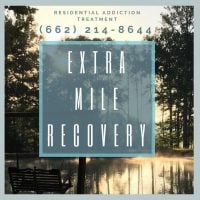Region III Chemical Dependency Servs Lifecore Health Group Addiction Servs
Drug Rehab Center in Tupelo, Mississippi
Region III Chemical Dependency Services Lifecore Health Group Addiction Services provides experienced and compassionate addiction treatment services to people suffering from opioid addiction, substance abuse, dual diagnosis, and drug addiction, with the added benefit of accepting private health insurance for an affordable recovery option along with aftercare support for maintaining sobriety.
About This Mississippi Facility
Region III Chemical Dependency Servs Lifecore Health Group Addiction Servs is a drug treatment center located in Tupelo, Mississippi. This facility specializes in helping individuals who are struggling with opioid addiction, substance abuse, dual diagnosis, and drug addiction. They offer a range of treatment levels including outpatient and residential care, as well as detox services. Region III Chemical Dependency Servs Lifecore Health Group Addiction Servs also provides aftercare support for individuals who have completed their initial treatment and are seeking continued guidance and support in maintaining their sobriety. Private health insurance is accepted at this facility, making it accessible for individuals seeking professional help in their journey to recovery.
Region III Chemical Dependency Servs Lifecore Health Group Addiction Servs provides a comprehensive range of services for individuals struggling with addiction and substance abuse. Their treatment methods include drug rehab, dual-diagnosis, and detox services. The facility offers outpatient and residential levels of care, ensuring that individuals can access treatment that best suits their needs. Through their aftercare support program, Region III Chemical Dependency Servs Lifecore Health Group Addiction Servs aims to provide continued guidance and assistance to individuals who have completed their initial treatment, helping them maintain their sobriety in the long term. Private health insurance is accepted at this facility, making their services accessible to a wider range of individuals seeking professional help in overcoming addiction.
Genders
Ages
Modality
Additional
Conditions and Issues Treated
The inappropriate use of any drug in Tupelo, MS is substance abuse. This involves alcohol, medications, and illicit drugs. With a combination of physical and psychiatric therapies, drug addiction is successfully treated at Region III Chemical Dependency Servs Lifecore Health Group Addiction Servs. After Detox is complete, individuals follow-up with treatments treating the root cause of the addiction.
Opioid Addiction Treatment supports people recovering from addiction to prescription drugs as well as illegal opioids. This is a hospital-based or residential treatment. Depending upon one’s age, detox without the appropriate medication may be unpleasant or even dangerous–some get body aches, fever, chills, while others may even have seizures.
Opioid treatment involves medically assisted detox, physical and mental support. Most rehabilitations use an array of treatments to ensure overall wellbeing, such as Medication-assisted therapy (MAT) in which one gets behavioral therapy, medicines, and counseling. A client-centered approach can reduce one’s chances of relapse. Therapists at work with the client to figure out environmental and behavioral triggers, giving them the power to change the patterns.
Levels of Care Offered at Region III Chemical Dependency Servs Lifecore Health Group Addiction Servs
This center offers a variety of custom treatment tailored to individual recovery. Currently available are Aftercare Support, Detox, Drug Rehab, Dual-Diagnosis, Outpatient, Residential, with additional therapies available as listed below.
Detoxification is a reduction in the effects of drugs and alcohol. It can be beneficial for people who have a history of withdrawal, who are at risk for dangerous health concerns, or who are unable to function well in their day-to-day lives due to addiction.
Detoxification is beneficial for:
- People who are unable to overcome addiction without the help of professional care.
- People who are at risk for dangerous health conditions due to withdrawal.
- People who are at risk for overdose or serious health concerns after a relapse.
If you believe that addiction treatment is right for you or a loved one, you can contact your primary care physician, or search for addiction treatment centers in your area. Treatment is beneficial to people who are motivated towards recovery, and who understand the benefits of professional care.
Outpatient rehabilitation is a treatment that exists if a patient is not checking into Region III Chemical Dependency Servs Lifecore Health Group Addiction Servs long term. In addition to helping them recover, the patient attends regular therapy sessions and detox and participates in other therapies. However, this is all primarily done from home. As a follow-up to inpatient treatment, outpatient treatment is usually recommended.
After rehabilitation, it helps people return to their everyday lives. It may also be an alternative to inpatient care in some situations. If they cannot leave their jobs, children, or don’t have the money for inpatient care, people can choose this method. Inpatient therapy, however, is the best method and most suggested level of treatment offered by Region III Chemical Dependency Servs Lifecore Health Group Addiction Servs in recovering from addiction.
Residential treatment programs are those that offer housing and meals in addition to substance abuse treatment. Rehab facilities that offer residential treatment allow patients to focus solely on recovery, in an environment totally separate from their lives. Some rehab centers specialize in short-term residential treatment (a few days to a week or two), while others solely provide treatment on a long-term basis (several weeks to months). Some offer both, and tailor treatment to the patient’s individual requirements.
Treatment for substance abuse does not cease after an individual successfully completes a detox or rehabilitation program. A vital follow-up treatment service is aftercare support provided to individuals at Region III Chemical Dependency Servs Lifecore Health Group Addiction Servs in Mississippi after they attain initial sobriety.
Aftercare support often takes the following forms: 12-Step Programs, Outpatient Treatment Programs, and Support Groups. The most effective aftercare programs are tailored to meet an individual’s specific needs and circumstances.
Therapies & Programs
Addiction and alcoholism always harm an addict’s relationships with others and none more than relationships with a spouse or partner. Couples therapy is an essential part of restoring trust and good communication to intimate relationships harmed by addiction. Couples therapy by Region III Chemical Dependency Servs Lifecore Health Group Addiction Servs helps repair the damage done to these important relationships.
Recovery can be more effective if the entire family’s involved. Family therapy hosted by Region III Chemical Dependency Servs Lifecore Health Group Addiction Servs brings in the addict’s family to explore genetic factors. It gives loved ones the tools for dealing with addiction and its underlying mental issues. It is a recommended step in helping addicts adapt to sober living.
Trauma is one of the most common causes of psychological disorders. It’s often found in people with addiction diagnoses. Trauma therapy addresses this by examining the emotions and thoughts people have formed due to past traumas. Traumas are complex but trauma therapy can reduce their ability to contribute to addictive behaviors.
Dialectical Behavioral Therapy is a form of Cognitive Behavioral Therapy. It is designed for those who are prone to self-harm and suicidal behaviors. Region III Chemical Dependency Servs Lifecore Health Group Addiction Servs aims to help patients understand the relationship between their thoughts, feeling and behaviors and it gives them the tools to make a change. It is effective for those whose addictions and behaviors stem from extreme mental health issues.
Self-defeating thoughts and habits can limit your possible successes. Some examples of this are procrastination, unhealthy eating and angry outbursts. REBT is a method of specific counseling offered by Region III Chemical Dependency Servs Lifecore Health Group Addiction Servs that replaces negative and self-limiting thoughts.
A 12-Step Program is a common method that is used to treat addiction. This format is used for both drug and alcohol treatment. It is extremely popular and successful for large numbers of people and the staff at Region III Chemical Dependency Servs Lifecore Health Group Addiction Servs are trained to assist in 12-step management.
Contingency Management (CM), also known as motivational incentives or prize method, is a behavioral therapy type. It is based on the principle that their consequences influence the behaviors of an individual. So, it promotes the desired behavior by giving rewards while discouraging the unwanted behaviors by withholding the rewards or even by giving punishments. One of the expected desired behavior is the absence of drug in a toxicology screen, and the rewards vary from prize or vouchers, to experiences. CM is used for individuals who need therapy for more than 3 months, and it has the advantage of being implemented by family members.
Payment Options Accepted
For specific insurance or payment methods please contact us.
Is your insurance accepted?
Ask an expert, call (888) 674-0062
Additional Details
Specifics, location, and helpful extra information.
Tupelo, Mississippi 38804 Phone Number(662) 987-4260 Meta DetailsUpdated November 25, 2023
Staff Verified
Patient Reviews
There are no reviews yet. Be the first one to write one.
Tupelo, Mississippi Addiction Information
Mississippi has one of the highest rates of drug and alcohol abuse-related deaths. Approximately 350,000 residents use illicit drugs every year while another 108,000 abuse alcohol. In one year, doctors in Mississippi prescribed 76.8 opioid prescriptions for every 100 persons. This compares to the national rate of 51.4 prescriptions.
Drug-related deaths accounted for over 20% of accidental deaths in Tupelo, Mississippi last year. In 2016, there were over 2,000 admissions to drug and alcohol treatment facilities. Additionally, there were over 600 arrests for drug-related offenses in Tupelo in 2016. The best treatment option for an individual will depend on their unique situation and needs.
Treatment in Nearby Cities
- Carthage, MS (115.2 mi.)
- Decatur, MS (126.8 mi.)
- McComb, MS (231.3 mi.)
- Richton, MS (200.3 mi.)
- Magnolia, MS (237.7 mi.)
Centers near Region III Chemical Dependency Servs Lifecore Health Group Addiction Servs
The facility name, logo and brand are the property and registered trademarks of Region III Chemical Dependency Servs Lifecore Health Group Addiction Servs, and are being used for identification and informational purposes only. Use of these names, logos and brands shall not imply endorsement. RehabNow.org is not affiliated with or sponsored by Region III Chemical Dependency Servs Lifecore Health Group Addiction Servs.



